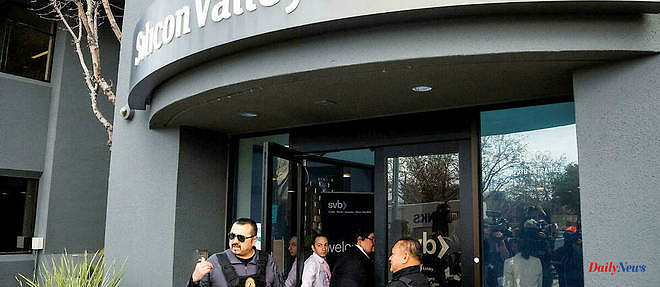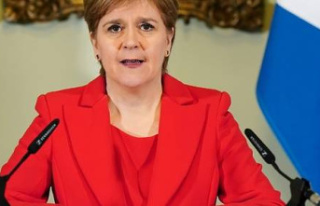Will there be a domino effect? Will the shutdown of Silicon Valley Bank (SVB), the largest bank failure in the United States since the 2008 financial crisis, spread? Financial analysts interviewed Monday by Agence France-Presse remain for the moment rather optimistic because of the measures taken by the American authorities, but the markets are worried.
"We're not in the same situation, it's much more circumscribed, with a certain type of bank and a clientele from a certain sector [regional banks working a lot with the technology sector, editor's note]", indicates to the Agence France-Presse Éric Dor, director of economic studies at the IESEG business school.
SVB remains "a rather special case", adds Lionel Melka, partner at the investment company Swann. According to him, the trend may have been accentuated by the "suddenness" of the bankruptcy, but "it will calm down" and the banking crisis is already "contained" with the measures of the American authorities.
The latter announced a series of measures to reassure on the solidity of the American banking system and will in particular guarantee all the deposits of the bank in bankruptcy. The US central bank (Fed) has also agreed to lend the necessary funds to other banks that need them to honor their customers' withdrawal requests. "The banks are in a much stronger position than they were before the financial crisis" of 2008, also judges in a note DWS, the largest asset manager in Germany.
In the short term, "there will be two things to watch: whether the authorities' actions are successful in maintaining [or restoring] confidence in the US banking system, and whether there are other institutions with similar vulnerabilities to SVB lurking." in the shadows, in the United States or in other economies,” tempers Neil Shearing, principal economist of Capital Economics, in a note.
Same story with Paul Dales, chief economist of Capital Economic, who sees reassuring elements in the way "other banks are regulated or have passed stress tests", but warns "of the risk that other banks find themselves struggling if people withdraw funds and that drives a greater loss of trust that would be hard to recover from." Shares in the global banking sector suffered on Monday, plagued by contagion risks. European stock markets closed sharply in the red, but Wall Street recovered the bar in the afternoon.
The US central bank's forced monetary tightening has contributed to weakening commercial banks and slowing economic activity. It has encouraged customers to invest their money in financial products that pay better than current accounts, and has shaken up the cash-hungry new technology sector by increasing the cost of borrowing.
"As always, it is an increase in interest rates by the Fed that reveals the weaknesses of the system," said Éric Dor.
The sharp rise in rates over the past year has also "revealed the post-Covid excesses" which are "being corrected", especially for players "having mismanaged their positions" in the new financial environment, adds Alexandre Baradez, IG France analyst.
After the announcement of the takeover of SVB by the Deposit Insurance Agency (FDIC) on Friday, many had worried about the fate of deposits blocked by the failure of the establishment. Some 96% of them were not covered by traditional deposit insurance.
"The guarantees provided by the Fed are important, and it has opened a window to provide additional liquidity", highlights Alexandre Baradez. Paul Dales (Capital Economics) believes that "the cost of Fed support will ultimately be paid by banks" contributing to the FDIC, who "may ultimately pass it on to their customers." But I think it would be wrong to say that the taxpayers are paying."
By contrast, shareholders of SVB and Signature Bank, which also went bankrupt, "are going to lose everything," a Fed official said over the weekend.












